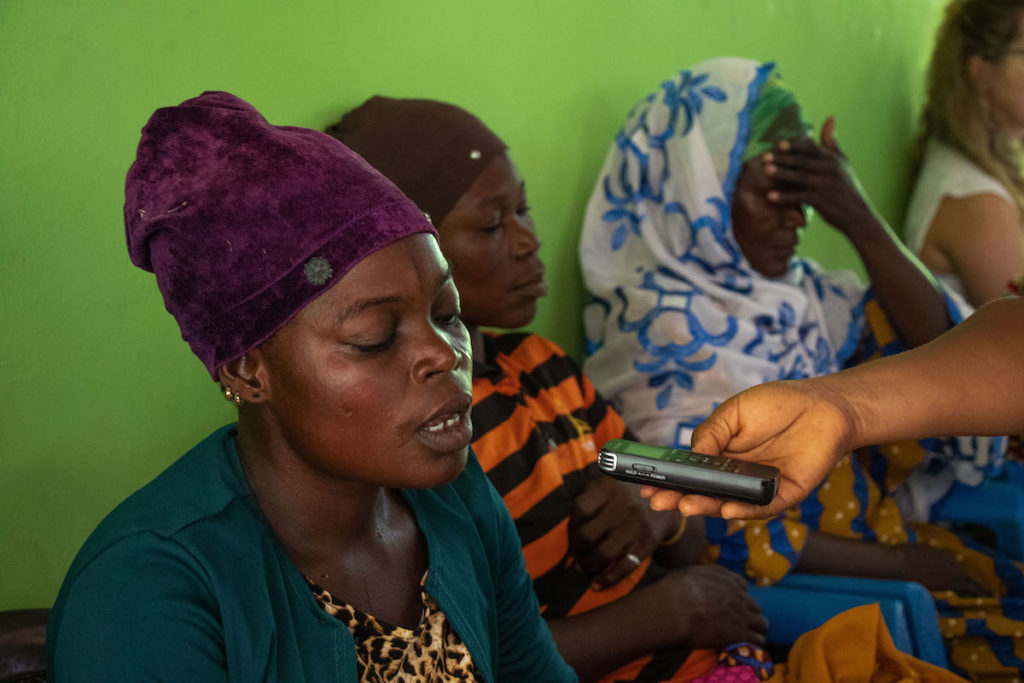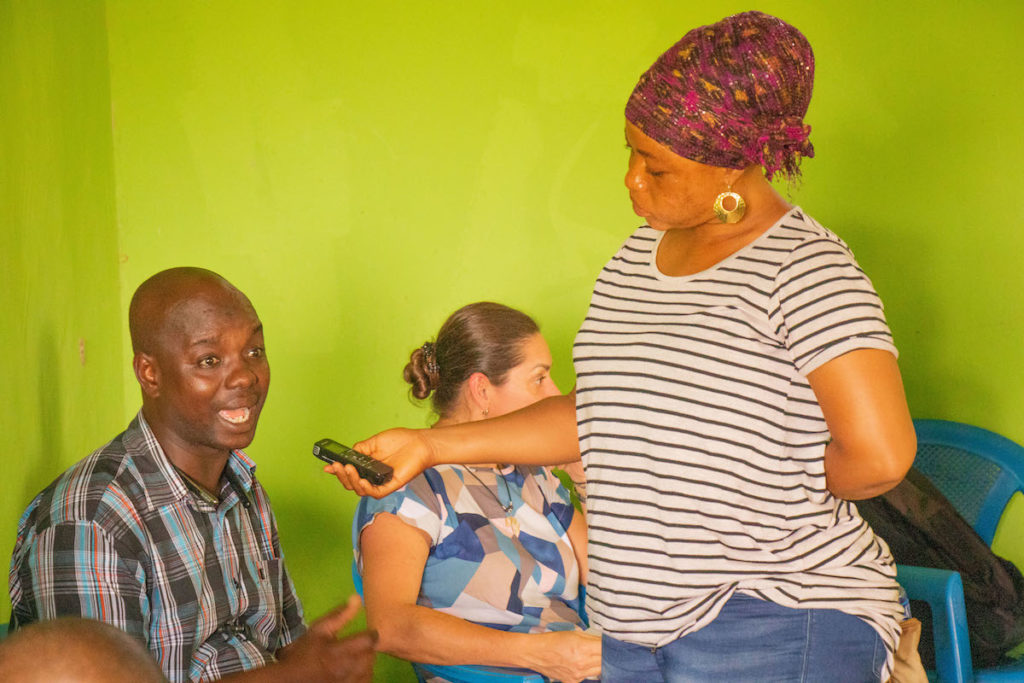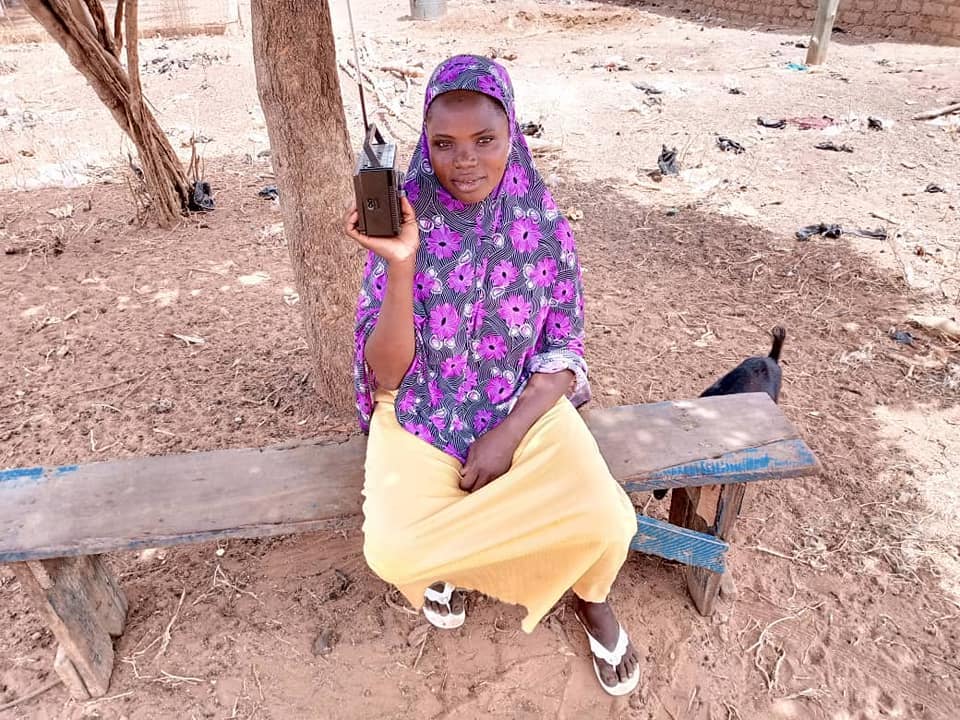The collection and processing of shea nuts into shea butter can be a reliable source of income for many women in Northern Ghana. However, health and safety hazards abound, and economic conditions have pushed many to cut down shea trees for firewood. This has led to supply chain bottlenecks for sustainable shea butter.
A new radio programme is making a difference. “Kpihi Saha”, or Shea Nut Time in the local dialect, has been introduced as part of the “Strengthening the Sustainability of the Shea Supply Chain in Northern Ghana” project. The programme educates listeners on safety measures in the collecting and processing of shea nuts, the importance of the shea tree, the risks of deforestation, and other issues affecting the supply chain.
Ramatu credits the programme with helping her gain extensive knowledge on how to process quality butter and the importance of having an appropriate storage facility.
“I have started creating demarcations around the shea trees on the farm to protect them. I also have plans of planting some shea seedlings on the farm,” Ramatu says.
I have started creating demarcations around the shea trees on the farm to protect them. I also have plans of planting some shea seedlings on the farm.
Ramatu Muniru
The initiative is a partnership between Tungteiya Women’s Association, Solidaridad, Global Shea Alliance, The Body Shop, Cargill Zor, and the Lorna Young Foundation’s Farmers’ Voice Radio. The programme provides a platform for women shea producers and enables them to share their knowledge, experience and expertise through a weekly programme broadcast on two community radio stations in a local dialect.
The content of the broadcast is created during monthly meetings of the Programme Reference Group made up of 12 select shea nut collectors, processors and subject matter experts, and produced using the Farmers’ Voice Radio methodology.

For shea nut collectors and butter processors like Ramatu, hearing colleagues and subject matter experts discuss key issues affecting shea nut collection, butter making and marketing has helped them improve their prospects.
Promoting fruitful engagements
Ramatu participates in weekly communal listening sessions with 13 women in her community, which provides incentive to not miss any of the broadcasts. Similar groups have been organized across all 10 project communities.
To make the show more engaging, a listener feedback system based on Interactive Voice Response (IVR) technology, has been introduced. This allows Ramatu and her colleagues to call in, leave comments, ask questions and receive feedback, as well as updates on local shea nut prices.
To date, 37 episodes have been broadcast on the two radio stations with a potential listenership of 1.7 million people.

Shani Haruna, the shea programme officer at Solidaridad, sees the “Kpihi Saha” programme as a critical tool for addressing the challenges that exist within the shea supply chain. The programme complements the business training aspects with face-to-face training on health and safety, diversified livelihoods and cooperative development, as well as advocacy for parkland protection.
A vision for better livelihoods based on sustainable production
The Strengthening the Sustainability of the Shea Supply Chain in Northern Ghana project seeks to improve the livelihoods of 10,000 women shea nut collectors in ten beneficiary communities in northern Ghana by 2024. The three-year project engages and trains women nut collectors on business skills, collective marketing of shea, health and safety, climate-smart agriculture and income diversification, among others.

